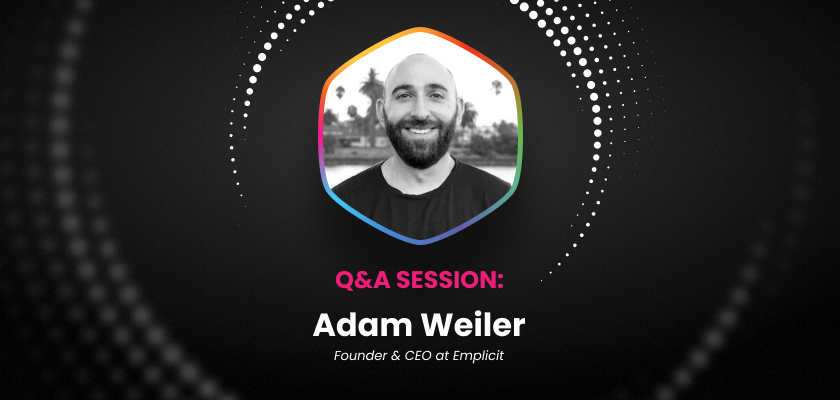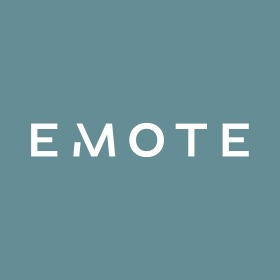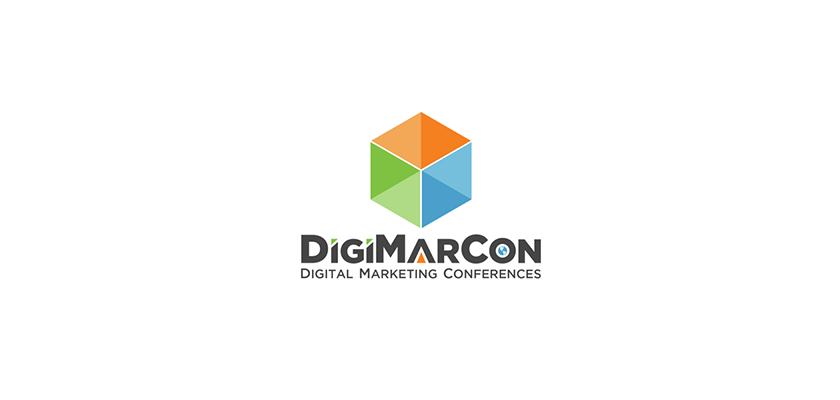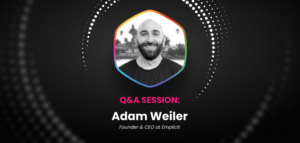
An Interview with Adam Weiler, CEO & Founder at Emplicit
Thank you so much for being a part of our Q&A!
Let’s begin with a few questions our readers might be interested to learn about Emplicit.
1. Could you explain the meaning of your company’s name to those who don’t know? What does Emplicit mean?
So “emp” in Emplicit is “eCommerce maximization partners,” and we are implicit in everything, including the success our clients have through eCommerce or on eCommerce. We set the stage so your brand shines, which means you’re the hero and we’re the guide.
2. When was your agency founded?
We’ve been selling on Amazon since 2007. We switched to the agency model about five years ago, in 2017. Then we rebranded from Sunken Stone to Emplicit earlier this year (2022).
3. What is your ground vision for the future of Emplicit?
I think that with eCommerce, the foundation is content, advertising, inventory, and customer service, and those are the pillars. Then the future builds on top of those with software, traffic sources, new traffic, and more logistics, or call it warehousing or capabilities of warehousing. I see these are the struggles a direct-to-consumer brand and other types of brands had in 2022 and will have them in the future when overcoming them will only get more important.
4. What was your agency’s biggest struggle? How did you manage to overcome that challenge?
I think there have been many struggles through the years. One of the biggest ones we have is balancing the right resources to go towards client services. In a traditional model, where we were and many others are in the marketplace, it was a revenue-based model or a percentage of sales model. And that doesn’t really align. If you look at the underlying motivation, an agency actually benefits by putting the lowest amount of people or resources towards the client, and that’s actually the reverse. So we did a lot of studies and actually switched to a time-materials model. We’re only getting paid if we’re working on the account, which means our motivation is to find new, great projects that are going to move the needle the clients love and approve to take them to the next level. That was a big switch.
5. What makes you different from other agencies?
Time and materials billing, the fact we’ve been doing it since 2007, so the experience, and then the end-to-end turnkey capabilities. We have all the abilities a lot of other agencies have that just manage advertising. That’s fine and good, but if you don’t have inventory in stock, you can’t advertise anything. Managing inventory and case management really separates us.
Now onto more personal questions…
1. What does a day in the life of a CEO look like?
A CEO of now a hundred-person company, it’s really handling people and process. Ensuring people are happy and I’m able to support them, hopping into high-level meetings, and talking about strategic partnerships is what my job is like now.
2. Can you tell us about your personal journey? How did you become the CEO of a successful Amazon Marketing Agency?
I started selling on Amazon in 2007. Credit card cash advance for 1,000 HDMI cables. I put them up for sale online, and that really just took off. I started bringing containers of products from overseas and then got an inquiry from a brand. They were like, “We don’t want you to sell our stuff, but we want you to manage our Amazon.”
I was like, “Okay, I guess that could work. Let me try it.”
We took them from a six-figure run rate to an eight-figure run rate in six months. They gave us a big check and sent us on our way and we’re like, “You know what? There’s something there.” So, we really started doubling down on that.
3. How do you balance your personal and work life as a leader?
Two small children, a two-and-a-half-year-old and a six-month-old don’t give me options to balance anything. There’s time for work, and then when the kids are around, you got to focus on them. I think it’s made me more focused. It’s made me more efficient and effective as a leader and worker.
4. Who has been an inspiration to you in your life and why?
A ton of people. I read a lot of history books about Einstein, da Vinci, and Steve Jobs–the good parts of Steve Jobs. Mentors throughout my life who have been great role models are my father and mother as well. But also, I think if I had to embody a brand, it would be the Kirkland brand at Costco. I think they nail it from a value perspective. I think I am Kirkland in life–not fancy or showing off, but always delivering.
Now, let’s dive into more detail about the services you provide for your customers!
1. Amazon marketing is a very niche field. Can you please detail what Amazon Marketing is and what kind of services you provide in this particular field?
Within Amazon marketing, there are many things. There’s obviously the advertising part, which is pure pay-per-click, display ads, or video ads, then all the things that go into that–building out an effective listing, which is in essence the landing page. If you’re only doing ads, you’re not doing the whole story and not getting a complete service. You need to build amazing listings.
You also need to maintain inventory levels for those products. If you don’t have inventory, it doesn’t matter how good your marketing is–you don’t exist. We provide an end-to-end Amazon experience because, without that, we would be failing our clients and wouldn’t be providing a full experience for what they need to win.
2. What challenges do you think the amazon marketing industry will face within the next five years?
Just like with any new platform, the price of clicks, eyeballs, or impressions is going to increase. You have to be able to differentiate between strategy and tactics. You have to prioritize and have a great overall strategy as far as profitability, as far as return, as far as what products to prioritize. You need a plan for that.
What’s going to happen is Amazon will continue monetizing the platform. It’s a pay-to-play platform. It’s only going to become more and more, and you’re going to need software and people to execute that strategy. It used to be you could just do it all yourself, but now you need advanced software and people managing that software.
3. What are the advantages and disadvantages of Amazon Marketing?
The advantages are you could get sales for any product instantly. If you have the budget and set bids high enough, you can get traffic to your page and get sales immediately. It’s still one of the best ROI channels, as far as digital marketing goes. It’s better than Google and Facebook for our clients.
The disadvantages are there are 20 different placements you need to have. It’s complex, so you need to understand the different placements and where you should focus your attention. It can get out of hand quickly if you don’t have your eye on it.
4. What kind of tools do you use? Could you tell us about your eCommerce technology, such as FlatFirePro and Stonehenge?
I think we have over 30 different software we run at the agency, in addition to our own stuff we built internally. We built File Pro and Stonehenge. Stonehenge is the analytics platform that empowers the agency to get all the sales, get inventory levels, make replenishments, look at advertising results, look at copying content, and manage all of that. And then, there are other tools to build–whether it’s AI tools, or good old Excel and running some view lookups.
5. Do you think small businesses would also benefit from your Amazon Marketing services?
Small businesses would also benefit from Amazon marketing services. The beauty of our services is they can be scaled up or down, depending on the client. We can service a wide variety of clients. A Fortune 500 is going to have different needs and a different return on ad spend targets than a small business, and we can work with both of them.
6. How exactly do you generate results for your customers and how do you measure success?
So, here is something. It used to all be in revenue and sales increases, ads increases, and ad sales increases. But what we do now from a strategy perspective is learn the client’s goals. What are their short-term and long-term goals? Are they looking to sell, and are they going to sell on top-line sales, or are they looking for EBITDA growth? That outcome is going to inform our strategies and tactics.
We need to understand if the goal is flat-out growth because we can be more aggressive and add in additional marketing levers. Or, is the goal to maximize profitability? Because then we would maybe de-list some listings or not prioritize listings that aren’t doing well so we can focus more resources on the ones that are. It starts with a plan and strategy, and we go from there.
7. In which industry do the majority of your clients service? What challenges have they been facing, and how does Emplicit help them overcome those challenges?
We service clients across any consumer good. About 80% of our clients are in the pet, beauty, personal care, health, and nutrition spaces. The other 20% are in soft lines, clothing, and accessories. The majority of the playbook is the same. We have different goals for some of the marketing levers and marketing activities, but majority overlap.
8. What’s next for your team and Emplicit?
We’ve got some pretty aggressive growth goals we mapped out and are excited about. We’ve got great leadership and a great team at the company. The future is bright. Obviously, we’re on Amazon. We’re an Amazon agency, but as more and more marketplaces become prominent and if they get to a critical mass, we can easily take clients and have taken clients, up to Walmart and Target. Those and International Amazon are 2 big initiatives we’re going to undertake in the next couple of years.
9. Especially considering the metaverse and extended reality techs shaping the digital marketing and design industry, how do you integrate your work with the technology to move to the next level?
I haven’t tried Metaverse shopping. I think some augmented reality where you can see a piece of furniture, how it’ll look in your room, I think that’s really powerful. We’ve done some meetings in the Metaverse. They’ve been really effective. They’re closer to in-real-life meetings than they are to Zoom meetings, and I think that’s powerful. I think more and more people are going to do that. So, look for that trend to pick up.
And any VR, AR companies that have accessories or products that want to improve sales on Amazon, please let us know!
10. How do you think being a DAN member will contribute to your company’s success?
Yeah, I think the network is amazing. We’re in with other amazing agency owners, or sorry, in with other amazing agencies with cutting-edge providers, and it’s great to be among that class.
Bonus Questions
What is your secret talent that no one knows about?
How to be a CEO and be the dad of 2 small kids. Actually, I think I could make a steakhouse-quality steak at home. And the secret there is the pre-salt and the reverse sear.
What is your favorite desk object?
My desk is quite cluttered. I’m looking around right now. Besides my computer, my Mac mini M1, which is on my desk, I think it’s my wireless charging setup, which is super convenient. I can charge my headset, I can charge my headphones, I can charge my phone, and I’m always juiced up.




















